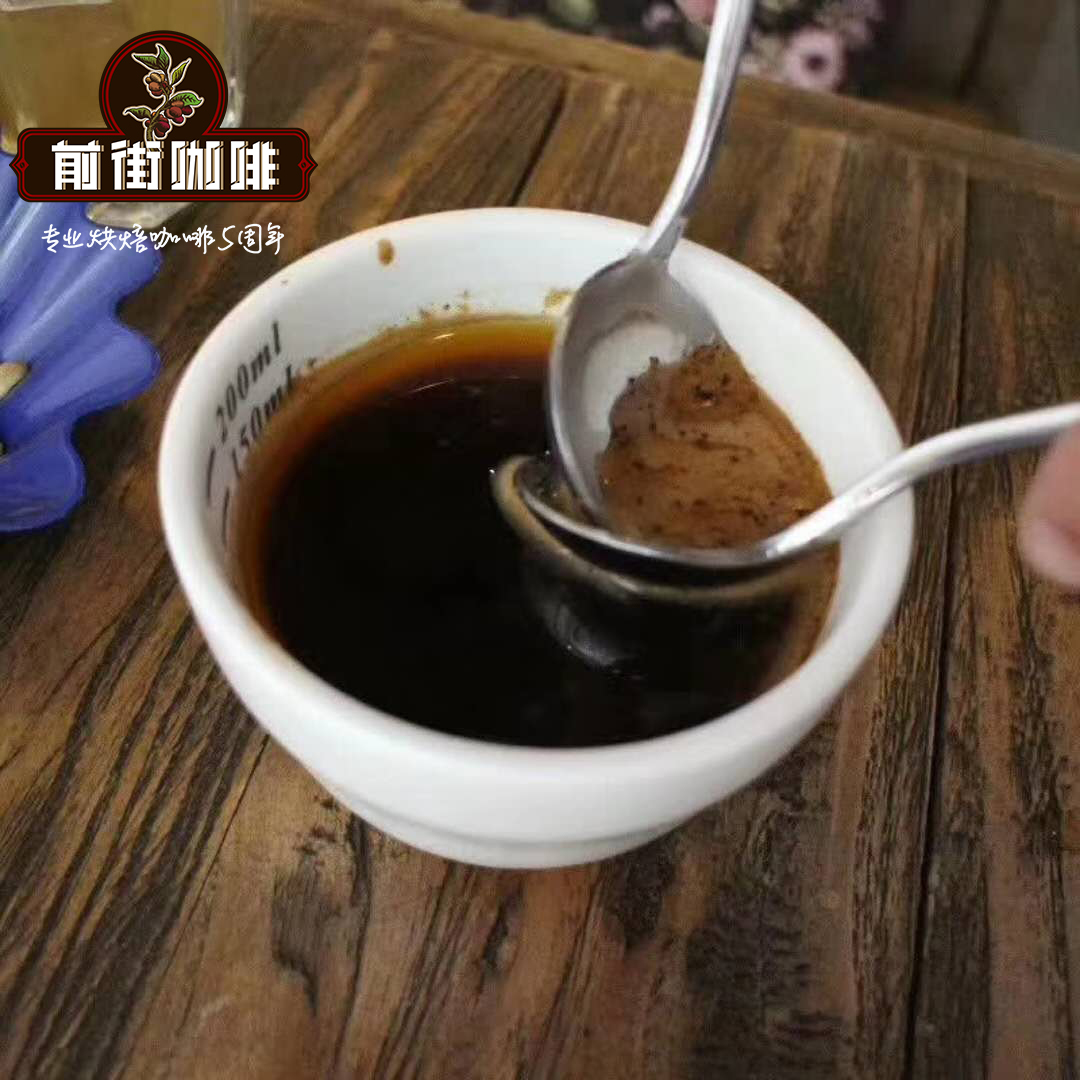Hand-brewing Analysis of Rwanda Micro-batch Bourbon Coffee beans _ which is better coffee beans from Uganda or Rwanda

Professional coffee knowledge exchange more coffee bean information please follow the coffee workshop (Wechat official account cafe_style)
Rwanda, located in the southern equator of central Africa, is a landlocked country, bordered by Tanzania to the east, Burundi to the south, the Democratic Republic of the Congo to the west and Uganda to the north. The territory is mountainous, known as "the country of a thousand hills". The divide between the Congo River and the Nile River runs through western Rwanda from north to south.
Rwanda's economy is dominated by agriculture. The population engaged in agriculture and animal husbandry accounts for 92% of the country's population. The main cash crops are coffee, tea and cotton. Because it is an agricultural and animal husbandry country, coupled with the loss of many young workers caused by the genocide in 1994, it is a huge blow to a country that is not already rich, and Rwanda is still a backward country. After the civil war, Rwanda has intensified its development in the cultivation and trade of coffee. In recent years, the Rwandan government has also taken positive measures to set up coffee production cooperatives in various places to give technical guidance and financial support to farmers. It is expected that the domestic economic development can be promoted to a certain extent through the coffee industry. Because of the excellent performance of Rwandan coffee in recent years, it is becoming more and more popular in the international market.
Rwanda has been growing coffee since colonial times. Although the crops are mainly coffee, the quality of coffee produced in Rwanda is not outstanding, and its status in the coffee world is low, and few people pay attention to it. Most of the coffee varieties grown in Rwanda are bourbon. Rwanda, known as the "country of a thousand hills", has a high-altitude mountain environment, fertile volcanic soil and abundant precipitation, and has a climate conducive to the growth of coffee trees. The advantages of varieties and excellent natural conditions should have produced high-quality coffee, but why the quality of its coffee performance is not satisfactory? The reason lies in the later stage of processing. Improper handling will reduce the quality of coffee and sacrifice a lot of good flavor in vain. Harvesting, planting, treatment, grading, transportation and other links will directly affect the quality of raw coffee beans, in which the lack of control in a certain link will become a stumbling block to good coffee.
The coffee fruit needs to be transported to the processing plant as soon as possible after picking, but due to the lack of domestic facilities, it is unable to deal with the fruit at the first time. The fruits are piled up after being picked, which will continue to develop and accelerate mildew and decay due to lack of ventilation. Rotten fruits will affect the quality of coffee and show defective flavor.
In recent years, the production and processing of Rwandan coffee has made great progress. First of all, coffee fruits are picked manually; coffee production cooperatives are set up all over the country to provide technical guidance to coffee farmers; coffee farmers send them to coffee processing stations for cleaning and screening as soon as possible after picking, and select mature and high-quality coffee fruits for processing.
Most of the coffee in Rwanda is washed. The water washing method will first wash and flotation the ripe coffee fruit, then remove the exocarp, pulp and part of the pectin layer, then send the coffee into the fermentation tank, remove the remaining pectin layer and then send it to the drying ground for drying treatment, so that the water content reaches about 13%. The coffee in the picture above is dried on an African shed to avoid the smell of dirt. It is more ventilated and mildew can be avoided. During the drying process, coffee farmers will also turn the beans regularly to make the drying more evenly, and at the same time will pick out the beans of poor quality and discard them.
With the improvement and improvement of Rwandan coffee in various aspects, its quality has also made a qualitative leap. In the 2008 COE contest held by the American Fine Coffee Association SCAA, Arnomega, Rwanda, beat the Blue Mountain 1 of Jamaica and Mantenin G1 of Sumatra to defend the title. With its excellent quality, Rwandan coffee has won a place in the coffee world and won more attention.
The picture above shows Rwanda raw beans, bourbon species and water washing treatment. The picture below shows cooked beans, light to medium baked, round and plump, with beautiful beans.
When it comes to the flavor of Rwanda, I am ashamed of the biased perception of Rwanda in the first place. I still remember that when I first came into contact with coffee, smell training was very resistant to No. 3 in the 36-smell bottle, and I even felt nauseous when I smelled it. So subjectively, I always like to make up the taste similar to grass automatically for the smell of green peas. Due to the lack of experience in tasting and production, we will subjectively list the grass and lavender-like aroma that Rwanda has as its own conflicting flavor. So when the production of Rwanda smelled its individual lavender fragrance, the coffee glutton shrank back to its stomach. However, with the improvement of taste and production experience, there is a new understanding of Rwanda with its individual fragrance.
Before sharing this article with you, in order to have a more objective evaluation of Rwandan coffee, we specially taste it by cup test. Well-baked water-washed Rwanda has a dry aroma of roasted peanuts, accompanied by spice and wood aromas. The fragrance of wet lavender and green grass is strong. After the temperature drops a little, the sweetness of fruit increases, and the smell of lavender decreases. The palate is clean and mellow, with a good finish and a long-lasting aroma. The acidity is soft and the overall feeling is full and stretched.
Rwanda Coffee is like a friend with a distinct personality in your life. At first, you will stay away because of the other person's too distinct personality, but when you really know each other, you will be attracted by his unique temperament. Rwanda is such a guy with great personality.
END
Important Notice :
前街咖啡 FrontStreet Coffee has moved to new addredd:
FrontStreet Coffee Address: 315,Donghua East Road,GuangZhou
Tel:020 38364473
- Prev

Direct trade Rwanda organic coffee how to drink _ comparison of roasting degree of Rwanda coffee beans
For more information on coffee beans, please follow the coffee workshop (Wechat official account cafe_style) Rwanda is a late coffee producer compared with other African countries. Rwanda almost disappeared from the market due to civil war and genocide between 1990 and 2003. in recent years, coffee production has resumed due to international aid and political stability.
- Next

Record of Bourbon Coffee brewing at Ngam Bamuyi processing Plant, Rwanda _ Rwanda Coffee Bean species
For more information on coffee beans, please follow Coffee Workshop (Wechat official account cafe_style) Rwanda is a small landlocked country in East Africa with hilly terrain, fertile land and ancient bourbon species. Quality coffee beans are grown everywhere in Rwanda. It is said that coffee was introduced to Rwanda by German missionaries in 1904.
Related
- Detailed explanation of Jadeite planting Land in Panamanian Jadeite Manor introduction to the grading system of Jadeite competitive bidding, Red bid, Green bid and Rose Summer
- Story of Coffee planting in Brenka region of Costa Rica Stonehenge Manor anaerobic heavy honey treatment of flavor mouth
- What's on the barrel of Blue Mountain Coffee beans?
- Can American coffee also pull flowers? How to use hot American style to pull out a good-looking pattern?
- Can you make a cold extract with coffee beans? What is the right proportion for cold-extracted coffee formula?
- Indonesian PWN Gold Mandrine Coffee Origin Features Flavor How to Chong? Mandolin coffee is American.
- A brief introduction to the flavor characteristics of Brazilian yellow bourbon coffee beans
- What is the effect of different water quality on the flavor of cold-extracted coffee? What kind of water is best for brewing coffee?
- Why do you think of Rose Summer whenever you mention Panamanian coffee?
- Introduction to the characteristics of authentic blue mountain coffee bean producing areas? What is the CIB Coffee Authority in Jamaica?

